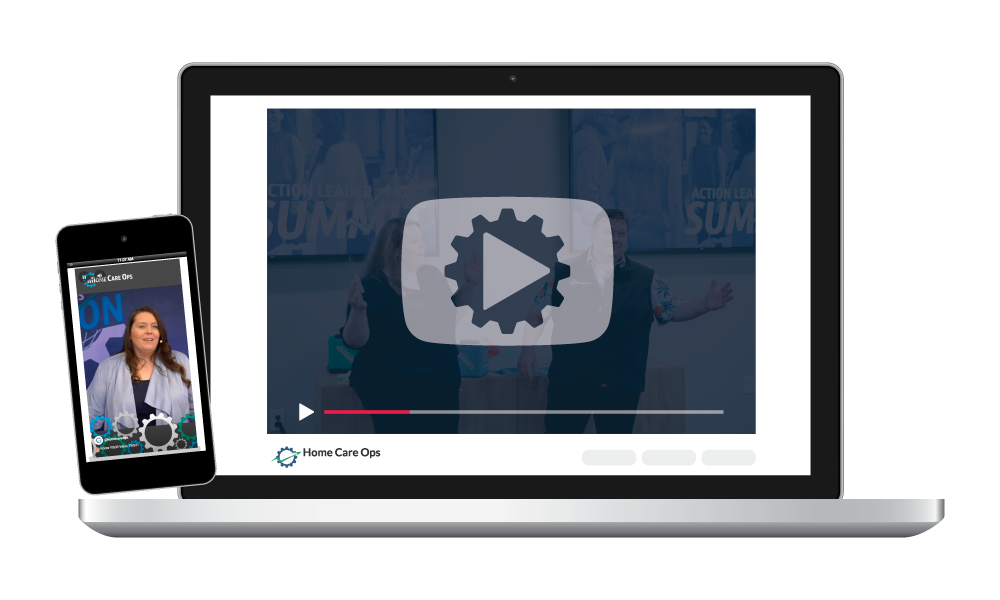"Watch your Phraseology!"
So exclaimed Mayor Shin on a couple of occasions in the musical The Music Man. Once after his wife says “Tempus fugit” (translation: time flies) and another after his daughter says “It’s Capulets like you make blood in the marketplace. Ye Gods!”.
Does he respond so because he doesn’t understand the phrases, doesn’t appreciate the meaning of the statements, or disagrees with them? Regardless, he seems to feel he’d prefer different words be used.
Consider for a moment if your right-fit audience is having a similar discomfort or lack of understanding with phrases you use in your communication. There are multiple terms used quite regularly within the home care industry that may not be fully understood by the people you hope to serve – or could be a little off-putting, such as:
- non-skilled
- non-medical
- companionship care
- end of life care
- respite care
- toileting
- private duty care
- specialized care
"Nobody cares how much you know, until they...
Know how much you care."
- President Theodore Roosevelt
Rather than lean into your own comfort zone of talking shop, how can you flip your messaging around to come more from their perspective?

Realizing that you or a loved one requires assistance for any of the myriad reasons can be overwhelming. As a home care owner, you have an opportunity to start providing relief and comfort in the earliest moments someone comes across your brand. By searching out the terminology your prospective clients and those involved in the decision process use and integrating it into your messaging, you’re far more likely to create a connective, relatable, compassionate, and empathetic experience. Explore ways to mirror their communication style while still establishing their trust, providing assurances and solutions, and demonstrating you are an authority in delivering what they need.
"What do you do?"
That’s seems to be the common question from curious minds as we meet new people or are calling around for more specifics regarding their business to help reach a decision. And, perhaps, because we hear the word “what” in the question, we tend to reply with a WHAT-based answer. In any industry, not just home care, the WHAT-based answer is generally the most technical and least connective answer we can provide. With all the humanity involved in the home care industry, it’s an unfortunate contradiction to what home care agencies hope to offer when content and communication don’t escape technical, WHAT content and appeal to the WHY. If you’re as big of a fan of Simon Sinek as I am, you know he frequently encourages people by saying, “… people buy WHY you do…”
Let’s illustrate the simplest instance of a WHAT-based answer vs a WHY response:
WHAT-based
THEM: “What do you do?”
YOU: “I own a home care business.”
THEM: (Thinking, because they don’t want to say it outloud and be wrong… “So, home repairs… got it.” or “So, in-home nursing… got it?”
WHAT-based
THEM: “What do you do?”
YOU: “I own a home care business that provides care for dementia patients using music therapy, respite care for the family, mobility assistance, and all other sorts of spcecialty care our caregivers are certified to provide. What do you do?”
THEM: “I …”
WHy-based
THEM: “What do you do?”
YOU: “You know how there are some families struggling to help loved ones with Alzheimer’s?”
THEM: “Yes. I have a neighbor who’s mom has Alzheimer’s. It’s a real challenge for them to care for her.”
YOU: “Yes, it can certainly be a challenge. The business I own, ABC Home Care, hires caregivers who can be there for those with Alzheimer’s and their families who are also experiencing the effects of the disease in their lives.”
WHAT-based
THEM: “What do you do?”
YOU: “I own a home care business.”
THEM: (Thinking, because they don’t want to say it outloud and be wrong… “So, home repairs… got it.” or “So, in-home nursing… got it?”
WHAT-based
THEM: “What do you do?”
YOU: “I own a home care business that provides care for dementia patients using music therapy, respite care for the family, mobility assistance, and all other sorts of spcecialty care our caregivers are certified to provide. What do you do?”
THEM: “I …”
WHy-based
Of these examples, which do you feel would be the most likely to leave a more lasting, positive impression about your home care agency – and you?
Consider taking a similar approach with any content promoting your agency: website service pages, brochures, blogs, ads, etc. And, this conversation with a prospective client will play out a bit differently than the ‘getting to know you’ scenario previously explored. With prospective clients and their loved ones involved in the decision process, you’ll want to quickly qualify what they need most and their own WHY. This allows you to navigate the dialogue around the key problems and pains they are faced with and hone in on the outcomes and solutions they are seeking. Within this dialogue, it’s critical to speak to the alternative solutions – briefly speaking to the pros and cons, get buy-in on your proposed solution as being the one to choose, and build enough credibility that you become their trusted choice.
Connecting with Clients
Let’s run a scenario similar to the “What do you do?” example. Let’s assume a few things first, though. As a professional solutions provider:
- You know the pains and struggles clients and their families are faced with for the various home care services you provide.
- You are aware of what they’ve had to go through before looking outward for help.
- You’re familiar with the alternative solutions they may have already researched or even used before coming into contact with you.
- You’ve collected and are collecting stories with current/past clients that illustrate the outcomes experienced through your agency.
- You know, that based on WHAT they are struggling with and WHY they are looking for help, you are the solution they need.
Now… remember President Roosevelt’s quote?… You could lead out all of your content with what you know, or you can strive to make a connection; using what you know to guide your prospects to discover you are the best option “all on their own.”
We’ll stick with Alzheimer’s/Dementia care as the situation being addressed for the client.
WHAT-based
Our caregivers help clients with Alzheimer’s Disease or other dementia types as they struggle with memory loss, disorientation, confusion, and other challenges. They are trained and certified in areas of music therapy, memory activities, and identifying other cognitive exercises that prove beneficial to your loved one.
As members of the Alzheimer’s Association of America, we actively advocate for progress in treatments and solutions for those impacted by dementia.
Beyond direct care for the patient, we can come into the home to provide respite for the family caregiver. This allows the family to focus on errands or self-care while our caregiver provides for the immediate care needs of the client.
(and so on…)
WHY-based
Families with a loved one suffering from Alzheimer’s or other forms of dementia are painfully aware of the challenges that accompany the condition. Memory loss, confusion, balance issues, aggravation, and other symptoms don’t just affect the patient, they can also create overwhelm for the family.
If you’ve been the family caregiver, you’ve probably already experienced many of these, including recognition issues. Balancing care for your family member with other responsibilities like work, shopping, or other errands can prove quite overwhelming. Depending on their stage of decline, leaving them alone to quickly do something could be unsafe, but taking them with you might result in a scene if they suddenly become disoriented or don’t recognize you and don’t feel safe. You may have already enlisted family, friends, and neighbors to help fill in or take literal shifts to spread out the demands of care. We understand the emotional and physical challenges faced by both the person with dementia and their family.
With training and experience to navigate those with dementia through various stages of confusion, irritability, and disorientation, our caregivers help minimize any sense they may have of being unsafe. For the families of those with dementia, we help them feel assured their loved one is receiving proper care, allowing them to focus on errands, jobs, other family members, or even self-care. We’ve also found that the music therapy and other cognitive exercises our caregivers are certified in have helped create more moments of clarity and recognition when spending time together with family.
[TESTIMONIAL VIDEO – Imagine someone saying this: “When I found out my wife, Heather, had Lewy Body Dementia, I discontinued work and started taking early social security. The days I was ‘me’ went fairly smoothly, but days where she didn’t recognize me were quite overwhelming for both of us. It was difficult to get her to go along with taking medication, going with me to the store, or even sleeping. She would object to taking medication from a stranger or even refuse to go to bed with a stranger in the home. Sometimes hopping in to take a quick shower was too long to leave Heather alone, as she would decide to leave the house and be found by a neighbor.
When we found ABC Home Care and started having Rachel come each day, I wondered why I didn’t do this sooner! Between Rachel helping create some albums with gathered memories, doing some music and motion activities with Heather, and playing several cognitive games with her, we’ve experienced a significant improvement. The moments of failing to recognize me are fewer, and there isn’t nearly as much frustration during those times she becomes disoriented because I’ve seen Rachel and know from her example how to get through those situations better.
I’ve also been able to return to work, not worrying about Heather’s safety, and can take care of other responsibilities in the home without stressing about if she was going to wonder off or call the cops on me – the stranger in the home. ABC Home Care has given Heather more moments where the disease doesn’t appear to have taken over, and me more relief and sleep.” ]
Since 20##, we’ve been fortunate to help over ### other families experiencing the same struggles and challenges of dementia as Dave and Heather. There are two main motivators for us when it comes to helping those with Alzheimer’s, Lewy Body, or other forms of dementia:
- Helping them have more moments of clarity or doing all we can to slow the effects.
- Taking on the challenges for a family so they can focus more on loving the person with dementia, instead of becoming overwhelmed with them by the disease.
Rinse and repeat
Well… if you don’t have anything on your website that reads like the “WHY-based” content for Dementia, feel free to use it for inspiration. Be sure to evolve everything to fit your brand and solutions better and find 2-3 current/past family members/clients you can use in either a brief video testimonial or short written comments that clearly illustrate the outcomes they are happy to have experienced with you. Throughout the WHY-based content, you can see how the levels of content were included to drive whoever reads it to ABC Home Care as the solution:
- Before starting any writing, identify the audience. Are you communicating directly to the client or a loved one?
- Address the problem
- Explore solutions – even alternatives
- Position yourself as the authority
- Provide case studies or social proof
- Invite the prospect to take action
And, the next step is...
Start with just one service you provide and would like to increase brand awareness around at a time, and work with your management and even the caregivers working with the clients to start reworking your phraseology regarding that service. With a WHY-driven, solutions-based approach to your marketing and brand communication, you’ll find greater success in connecting with leads and converting opportunities to clients. Take what you know from the interactions with clients and other prospects to begin adjusting your approach more to their perspective.
Need some additional help knowing what prospects might actually be typing in when searching for your services? Go to https://answerthepublic.com/ (free), Semrush, or Google Insights (available through Google Ads if you’re running campaigns there).
As you feel you’ve got one type of service rewritten, have your management start working with caregivers and clients connected to your next priority area of service and begin the collection stage so you can easily move into rephrasing communication for those services.













